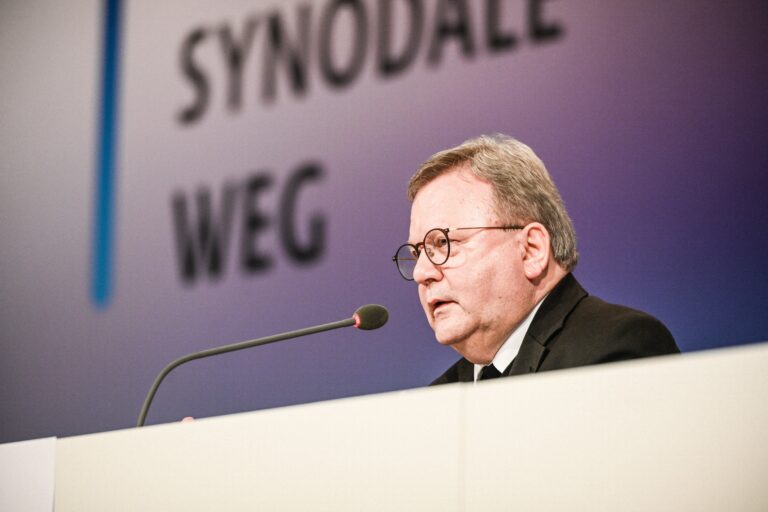The theologian Thomas Soeding has said he hopes that the resignation of Osnabrueck Bishop Franz-Josef Bode will be a “signal for a new beginning”.
In a guest article for the newspaper Neues Ruhrwort published on Tuesday, he praised Bode as an important reformer and called for clearer and more transparent rules for bishops’ resignations. “Why is his request for resignation accepted, while that of one of the harshest critics of the Synodal Path, the archbishop of Cologne, Cardinal Rainer Maria Woelki, is still pending? The public image is devastating,” he said.
Soeding is vice-president of the Central Committee of German Catholics (ZdK), the highest representative body of German lay Catholicism, and was one of the vice-presidents of the Synodal Path reform project in Germany, together with Bishop Franz-Josef Bode who resigned last weekend. The way Pope Francis dealt with requests for resignation “raises questions – and demands clear answers”, said the theologian, who teaches at the University of Bochum.
He said Bishop Bode deserved respect for drawing “consequences from his leadership failure” after a study confirmed that he had made serious mistakes in dealing with abuse. “Are there other bishops who will follow Franz-Josef Bode’s example or have already done so?”
One problem was the one-sided look to Rome regarding resignations, Soeding said. “The process is highly intransparent. No bishop can simply declare that he no longer wants to continue – and that’s that. Everyone has to ask the Pope for permission.“ The diocese itself wasn’t looked at, Soeding said. What was needed here was a binding format “to be accountable to the faithful and, if necessary, to ask for a vote of confidence”.
There was no clear line discernible in Pope Francis’ handling of resignation offers, Soeding said. For example, he had told Hamburg Archbishop Stefan Hesse, who like Bode had submitted his resignation because of mistakes he had made in the fight against abuse, to remain in office. “It was similar with Cardinal Reinhard Marx in Munich, although he had confessed to having reached a ‘dead point.’”
Hesse and Marx had “gone through a considerable learning curve” and supported the Synodal Path, the theologian added. “So one cannot just say that reformers are dismissed and those who put the brakes on are allowed to stay on. But there’s no clear line to be seen. That’s the problem.”
The situation in Osnabrueck could now become a “signal for a new beginning”, said Soeding. On the one hand, other Church representatives could act as rigorously as Bode and thus make clear their will for real renewal and reform. On the other hand, there was a chance now “to actively involve Church members in the appointment of a new bishop, as decided by the Synodal Path”. He said he also hoped “that the Pope sends a clear signal through his appointment proposals to advance the synodal process”.
Originally reported by KNA Germany.



